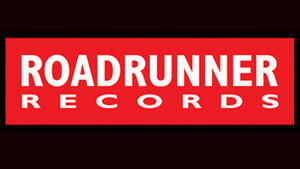All the latest guitar news, interviews, lessons, reviews, deals and more, direct to your inbox!
You are now subscribed
Your newsletter sign-up was successful

In a band? Have no idea how to go about getting a label to take you seriously? We've got the answers you're looking for.
In our blog series, "Dear Record Label," we went to Roadrunner Records -- home of Slipknot, Rob Zombie, Opeth, Megadeth, Kenny Wayne Shepherd, Trivium and more -- and asked them the tough questions young bands should know the answers to. Each week, we'll be bringing you advice from members of the Roadrunner staff to try and get you on track to get noticed.
This week, the advice comes from Roadrunner Records Vice President of A&R & Creative, Dave Rath.
Q: How important (and/or likely) is it to have a song played on the radio? Is airplay a realistic goal for an up-and-coming band?
DAVE RATH: No matter what you hear about the shrinking influence of radio, it is still the most significant driver for selling records in today’s market. Getting the right song played on radio at the right time can make all the difference. The single most important factor involving radio for any band, at any level, is to capitalize on the airplay. Radio likes to know listeners are responding favorably to their programming. If a station decides to give your music airtime and there is no way for the listener to respond, continuing spins are not likely. I wouldn’t recommend attempting to get something played on the radio unless you have something to promote such as performing live or having your music readily available for people to buy, download or stream in some traceable form.
Radio is often only one part of a label’s marketing effort to expose an artist. The timing for when and where to go with radio usually coincides with releases, tours and various marketing efforts. Sometimes it’s better for radio to be left out of the plan altogether. At Roadrunner, we’ve certainly recorded our share of records we know will never make it onto the commercial airwaves. We sometimes find it more productive to put our resources in a more fruitful area if we know radio is not going to support an artist. Unsigned bands should take the same approach. Radio is a long-shot. Sure, there might be a programmer at your local station that will give new music a chance. But betting on that as your best hope for success is like hoping to win the lottery. Concentrate on honing your songs and perfecting your live show and radio will eventually find you.
There is also the issue of writing music for the specific goal of getting played on the radio. As an A&R person, I shudder when I hear artists trying to write songs specifically for that reason. The last thing you want to do is put your musical integrity aside hoping to get the attention of a radio programmer. At the same time, if you ever expect commercial success via main stream terrestrial radio, you can’t write 20 minute songs filled with foul language. There has to be a balance between your vision and the ability to appeal to a particular audience targeted by radio. At a certain point an artist has to decide what is most important to them and live or die by that.
All the latest guitar news, interviews, lessons, reviews, deals and more, direct to your inbox!
And if you're an unsigned band, be sure to check out Roadrunner's Sign Me To website, which allows unsigned bands to display their music, move up charts based on fan ratings, get reviewed by Roadrunner staff and maybe even get signed!
